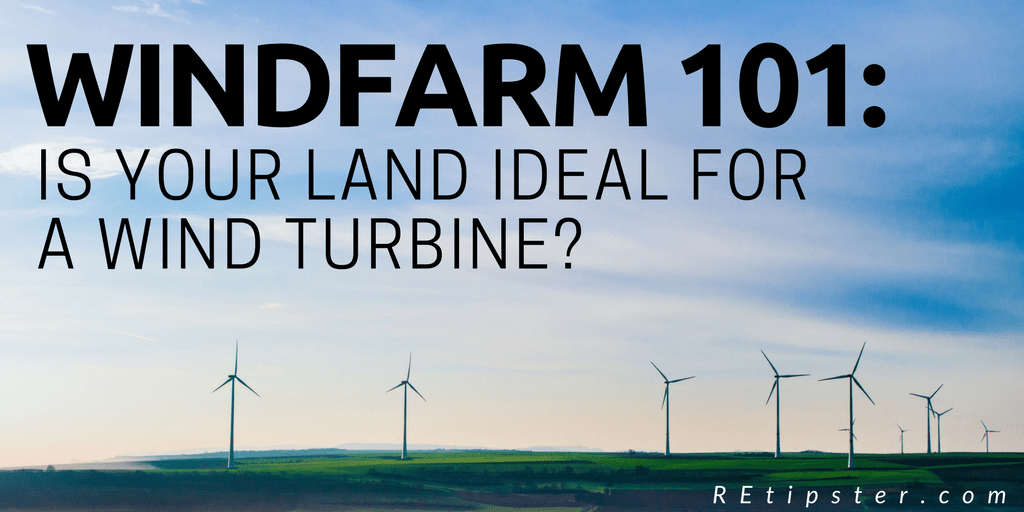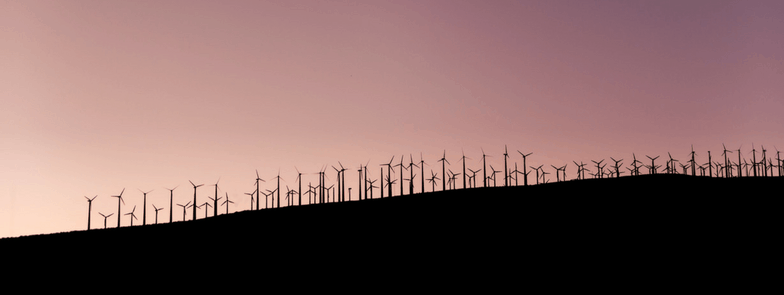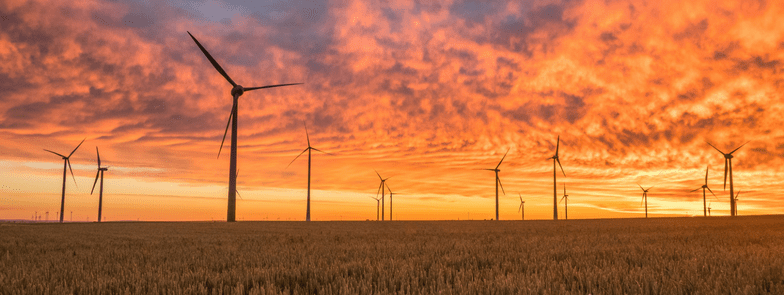
While I'm out of the office this week (on vacation with my family – WOOHOO!!), I wanted to give the stage to Susy Bento, the marketing and communications manager at Alcen Renewable.
If the idea of using your vacant land to produce renewable energy has ever sounded interesting or appealing to you, I think you'll find this guest article helpful. I know I've wondered about this kind of thing from time to time, but never really understood what to look for in determining whether or not my properties would make sense for this type of use.
Susy has put together a nice overview covering the high-level basics of how it works, how to know if your land is a good fit, and how you can get started down this path if you want to pursue it further. I hope you enjoy it!
Do you own open land in a windy part of the country? If so, you may be in luck!
Landowners with large parcels of land can make a steady, long-term profit by hosting windmills on their land. This additional income can range anywhere from $5,000 to $8,000 per wind turbine- an exciting incentive that increases with the size of land available.
If your land meets a few simple qualifications, you could be generating an annual income by harnessing the power of wind energy.
The Windier, the Better
Wind energy developers tend to do some research before taking on a huge project like building a wind farm. They tend to look at the average wind speeds of a given property before beginning the long, expensive process of turbine construction. For most wind developers, an average wind speed of 20 feet per second is perfectly suitable- higher wind speeds tend to generate more electricity, allowing for larger payoffs to landowners.
Wind developers install anemometers, thermometers, and sonic detection equipment on meteorological towers to precisely gather accurate wind data. Scientists then analyze the data to generate specific predictions – if the average wind speed on your property is high enough, you could soon be on your way to enjoying long-term income through a wind farm lease!
Since wind speeds change throughout the course of a year, developers must measure an annual average in order to determine exactly how profitable placing wind turbines on a given area will be. In some areas, this data is already made available through the National Climatic Data Center, which lists some of the windiest areas in the United States:
If your land is located near a vicinity that already has wind turbines on it, chances are your land is located in a prime spot for wind. Seeing wind turbines around often indicates that a wind farm developer has determined enough wind is being generated in the area to produce a profit. This is ultimately good news for landowners and the developer.
Make Your Land More Attractive to Developers
When determining where to place their next project, wind developers aren’t only looking at the size of your land or the wind speeds correlating to it, they are also looking for alternative ways to utilize your land. If a wind turbine is not suitable for your land, your land can be used for access roads for the project or a place to connect the project to a power grid.
1. Vehicle Access
If your land isn’t necessarily the right fit for a wind turbine, it doesn’t mean you can’t participate in the development of a wind farm. There is more to a wind farm then the actual turbine itself. During the construction phase of a wind farm project, access roads need to be paved out so cranes and large trucks can maneuver through the project site.
What if you already have roads on your land? Land that already has access roads built on it could be highly advantageous. Wind developers are willing to pay better rates to landowners who negotiate the terms of their lease based on this feature.
2. Electric Grid Access
Ideally, the land used for wind farm development should be placed suitably close to that of a local power grid for the energy produced to be transferred out to communities powered by renewable energy. If one’s land is far removed from civilization to where it effectively cuts from municipal electricity infrastructures, there is no incentive for wind energy developers to place windmills on it. Fortunately, advances in energy transmission technology has continued to increase the distance possible between wind farm projects and local power grids.
Benefits to Wind Development Leases
Any landowner who can offer access to terrain that is windy, accessible, and grid-connected has much to gain through a wind lease contract. Those who sign wind lease contracts can see beneficial gains in areas such as their personal income, the local community, and the environment as a whole.
Being part of a wind farm development project provides landowners with an additional steady income that they may not have had already. Farmers, in particular, can bolster their existing business with a steady income without having to give up their land for development. The turbine itself only occupies around 3% of a landowner’s available land and the rest will remain untouched by developers. Turbines typically do not affect livestock or other farming operations in any significant way.
By signing a wind lease contract, landowners are also ensuring that the housing county where these wind farms reside will receive an abundance of local jobs. From construction to operation, wind farm development can provide rural areas with jobs ranging from engineering to technician positions. The wind industry is a growing field that provides employees with an endless amount of job opportunities.
Wind energy doesn’t just benefit the landowners who participate in the development of the wind farm. Wind energy provides for the community, the environment, and for future generations. Wind power is a cleaner energy alternative that has the ability to offset the usage of fossil fuels. Wind farms can transform rural areas of land into clean power generating communities that in time will prosper and reap the benefits of wind power.












